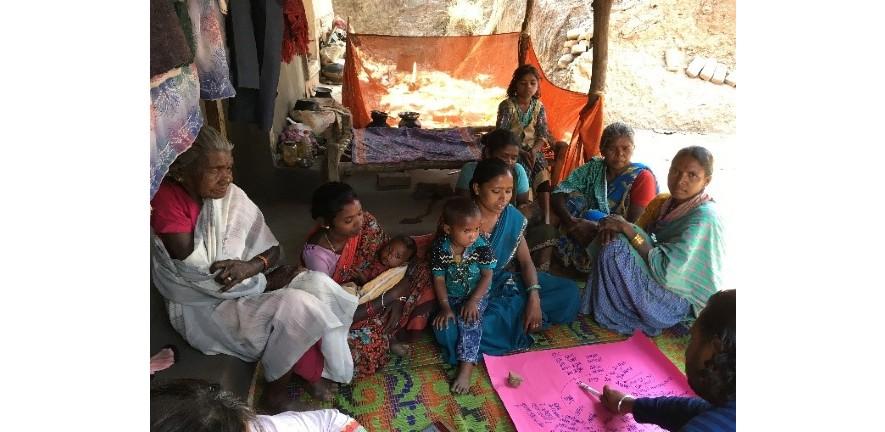
Submitted by K.L. Hlaba on Fri, 01/10/2021 - 15:33
‘Sustainable and Transformative Rural and Agrarian Strategies’ (START) is a flagship research project under the Transforming India's Green Revolution by Research and Empowerment for Sustainable food Supplies (TIGR2ESS) Programme, funded by the UK’s Global Challenges Research Fund (GCRF). The research was undertaken collaboratively between institutions across UK and India: University of Cambridge (Department of Geography and Centre for Science and Policy), University of East Anglia (School of International Development), International Crops Research Institute for the Semi-Arid Tropics (ICRISAT), MS Swaminathan Research Foundation (MSSRF), Professional Assistance for Development Action (PRADAN) and Lok Chetna Manch (LCM).
Running between 2018 and 2021, START aimed at understanding the political economy and policy challenges of building a sustainable agricultural and food system in India while critically evaluating the legacy of the Green Revolution across different regions of the country. While remaining cognizant of structural constraints, the collective approach of the team was to engage with, even foreground, the agency, knowledge and experience of agrarian and rural communities in shaping the possibilities for making agriculture and food systems economically viable, socially just and ecologically robust.
A driving motivation of this research project was to capture the diversity of socio-economic and environmental conditions of agriculture and through this, to underline that one-size-fits-all or top-down solutions would be unlikely to address the mounting challenges of rural India. Therefore, in keeping with the expertise of different institutions and individual researchers in the team, the research was conducted across five regions of the country: forested plateau region of south Bihar, hill zone of Uttarakhand, irrigated plains of Punjab, rainfed plains of Telangana and the coastal plains of Tamil Nadu. Within these regions, a specific block (sub-district administrative unit) was chosen to represent a specific type of socio-environmental, policy or programmatic issue. Within each block, one or more villages were selected for in-depth study by the respective team/researcher.
So, for instance, Chakai block in south Bihar was chosen to represent the livelihood challenges of Santhal Adivasis while a focus on Sirkazhi in Tamil Nadu allowed a focus on the commonly-overlooked predicament of coastal agriculture and agriculturists. Similarly, Atmakur block in Telangana was chosen to explore the impact of a recently-revived tank irrigation system, Bathinda block in Punjab to represent the changing cropping patterns in a successful Green Revolution region and Bhaisiya Chhana block in Uttarakhand to demonstrate the specificities of agricultural systems in the mountains.
This document is a unique compilation of the profiles of these diverse field sites. Drawing on both secondary data and primary research, these profiles outline the demographic, social, economic, environmental, infrastructural, administrative and policy issues that constitute the lifeworld of local communities. The most up-to-date secondary data has been used, some of which predates the primary research conducted 2019 onwards.
The document serves as a reminder of the range of issues shaping trajectories of development for particular social groups and geographical areas, while also demonstrating the depth and breadth of the START project. We hope that this will be a useful resource for researchers, students, policy-makers and practitioners in the field to assist with conceptualizing and developing new research agendas and practical interventions.
Please find the full document HERE.
Please find out more about the research project and the research team HERE.
Funding
This research was funded by the Global Challenges Research Fund as part of the TIGR2ESS Programme (BB/P027970/1).
Compiled by: Matilda Wring. With contributions from: Shreya Sinha, Pratheepa CM, Ravi Nandi, Arundhita Bhanjdeo, Astha Upadhyay, Shuvajit Chakraborty, Reetu Sogani, R Rengalakshmi, Padmaja Ravula, S Nedumaran, Nivedita Narain, Nitya Rao and Bhaskar Vira.
Image: Supplied. Research process in Chakai Block, Bihar State, India.
